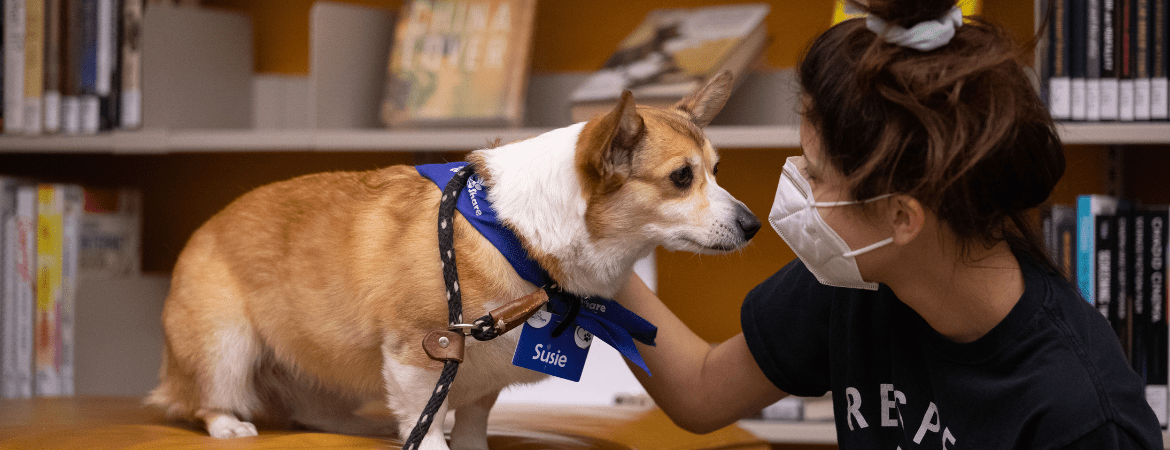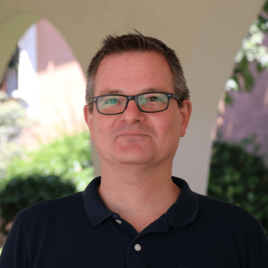Search
Search
Newly Processed Collections - Spring 2020
Special Collections & University Archives employees are constantly working to process recently acquired collections and make those materials ready for use by students, faculty, and researchers.
Each quarter, we will provide a list of the UCR Library's newly processed archival and primary source collections. Check out this list to see if there are any items that fit your research area, or share with a friend!
Below you'll find brief descriptions and links to the finding aids or collection guides for each new collection. To use any of these materials, simply click the "Request Items" button at the top to submit a request, and log in with our Special Collections Request System. For more on conducting research in Special Collections, see this page.
Per the County of Riverside Public Health mandate, SCUA will be closed until April 3, 2020, at least. Check here for updates throughout the COVID-19 closure.
For questions, email specialcollections@ucr.edu.
Newly Processed Collections - Spring 2020
Kenneth Turner papers (WRCA 246)
Assorted materials and documents relating to water rights including Tahoe basin, Hetch-Hetchy, and Glen Canyon Dam.
Sierra Club El Dorado Project (WRCA 239)
Collection contains environmental impact statements, correspondence, and court pleadings relating to the El Dorado project (No. 184) of the American River in California.
Homer Aschmann papers (UA 123)
Homer Aschmann was a professor of geography and one of the founding faculty of UCR. This collection contains articles, biographical essays, slides, notes, and other materials pertaining to his academic tenure.
Martin Barnes was a professor of entomology and plant pathology and a member of the founding faculty at UCR. This collections contains articles, slides, newsletters, correspondence, and other materials related to his research.
James M. Wallace papers (UA 341)
James Wallace’s long academic career started at the Citrus Experiment Station and he continued on as a founding faculty member at UCR. He was a renowned expert in citrus virus diseases and this collection contains a variety of materials related to his research career.
This collection contains reports, correspondence, minutes, and other materials documenting the operations of the College of Humanities, Arts, and Social Sciences at UCR.
Share Your Publications
Open Access
Open Access (OA) is an international movement to make peer-reviewed scholarly research quickly and freely available to the fullest community of users by removing barriers imposed by price, licensing, or copyright restrictions. In the US, federal and state funding agencies have adopted policies requiring that grant recipients provide public access to data and articles.
Finals Week Stress Relief: Fall 2020
The UCR Library is committed to creating a supportive atmosphere for our students, as final exams can breed a lot of stress -- not to mention the added pressures and isolation they experience during a pandemic.
This is the reason why we present our Finals Week Stress Relief (FWSR) event series: to serve and support students at UC Riverside.
This quarter, like spring quarter, we had to take a different approach due to the campuswide COVID-19 closure, while maintaining our commitment to supporting UCR Students.
Our FWSR committee has curated a fresh list of activities and services that are available online, which we hope R'Students will enjoy, including: Virtual Fluffies" (including library pets and live webcam videos from various wildlife organizations and aquariums), Story Time with two of the UCR Library's staff team, games, relaxation, virtual tours, fun and educational videos, and valuable campus resources to support student wellness!
Visit the Finals Week Stress Relief activities page and click on each of the category tabs at the top of the page to see all the options.
George Brown Papers Now Open for Research
On Thursday, November 17, 2016, UCR Library announced the opening of the George Brown Papers for scholarly research.
A private reception held on the first floor of Tomás Rivera Library honored Congressman George Brown’s life and work and recognized how his legacy will continue to serve future generations through this collection. Attendees included Brown’s widow, Marta Macias Brown, who had worked extensively with library employees to help make this collection available to the public.
“The wealth of materials in the papers will prove a fantastic resource for researchers interested in public policy, local history, the legislative process, and a number of economic, environmental, and social issues,” stated Collections Management Librarian Jessica Geiser. Geiser was first hired as a project archivist for the George Brown collection in September 2014. She led a team of students that documented their two-year long effort to organize and catalog this extensive assortment of primary source materials.
The collection includes over 1,000 boxes of professional and personal papers, photographs, audiovisual and digital materials, memorabilia, and more. Geiser and her team put great effort into ensuring easy access to the collection through the online finding aid. Resources on federal science and technology policy, environmental protection efforts including water and air pollution regulation, alternative fuel and energy development, land preservation and protection efforts, and climate change prevention are housed on the fourth floor of Rivera Library in Special Collections & University Archives. Materials are available for review in the reading room.
University Librarian Steven Mandeville-Gamble remarked, “George Brown was a great example of someone who could collaborate across party lines while working toward the greater good, which serves as a wonderful reminder of what is needed most during times of great change, like those we are currently experiencing.”
In many ways, Brown was a visionary whose contributions were ahead of his time. Brown was elected to the United States House of Representatives to represent the Los Angeles region from 1963 to 1971, and the Inland Empire from 1973 until his death in 1999. Noteworthy accomplishments during Brown’s 34-year tenure include the establishment of the Environmental Protection Agency (EPA), the passage of the Civil Rights Act of 1964, the Office of Science Technology Policy, scholarships for veterans, and Section 8 housing for low-income citizens.
Supporting Students When They Need It Most

Finals Week Stress Relief at the UCR Library provides much-needed support to students during the most demanding time of the quarter.
The week before finals and the week of finals, the UCR Library offers free activities to students like arts and craft events, food giveaways, contests, and games to help students take a break, recharge, and refocus. Therapy dog and cat visits, known as Therapy Fluffies, are a special highlight and brought to students with the help of our on campus partner The Well’s Active Minds.
UCR Library Serials Assistant Andrea Newman, a member of the UCR Library's Finals Week Stress Relief Committee, shared how impactful these events are. “The number one comment I’ve heard from students is, ‘Thank you so much… You guys are amazing!’ Whether we’re handing out snacks or boba drinks, the students are always so appreciative,” she said.
Students have shared how these programs help them navigate finals. “I really like the food-related ones because sometimes I forget to make time to eat,” one student said. Arts and crafts are another favorite, providing a creative escape from the pressures of exams. “Students often ask us to put on more arts and crafts events because they find them so calming,” Newman added.
The UCR Library is a space all students use, and programs like Finals Week Stress Relief ensure that it supports students in more ways than one. With over 900,000 visits annually, the library is a cornerstone of campus life, offering students not just academic resources but also a place to find balance during stressful times.
With additional donor support, the UCR Library could expand these offerings, creating even more opportunities to help students de-stress and succeed. If you’d like to support Finals Week Stress Relief at the UCR Library, there are many ways to contribute: you can donate food/snacks, beverages, arts and craft supplies for stress-relief activities, or provide financial support to help us broaden these initiatives. Please contact our Sr. Development Officer Shannon Castro to learn more about how you can make a difference. Your generosity will help us continue to ensure students have a space that supports their well-being and academic success.
Curious to see what we have in store for students for Fall 2024 Finals Week Stress Relief? Click here!
WEPA Public Printing System adopted campuswide
The WEPA public printing system has been successfully implemented at the Orbach and Rivera Libraries, and the system has been adopted campuswide.
With the successful implementation of WEPA public printing, the UCR Library's Cyberinfrastructure department began to decommission the legacy Pharos/Xerox Public Printing system at the end of fall quarter 2018.
They estimate completion of the following decommissioning steps by the end of the winter quarter 2019:
- Installation of a WEPA public printer in the Music Library as a replacement for the existing Pharos/Xerox public printer, and removal of all but one Pharos/Xerox public printer from each library – Orbach, Rivera, and Music.
- Pharos print driver software will be removed from all public computers. After the print driver removal, the remaining Pharos/Xerox public printers will be removed.
- A new payment processing system will be implemented for large-format (poster) printing.
- The Pharos public printing server will be formally shut down.
If you have any questions, please contact project lead Barry Harvey.
Alternatively, you may always contact the Library Helpdesk.
Darren Furey
As Director of Acquisitions, Description, and Discovery, Darren provides vision and leadership to the team that manages UCR Library resources from the moment they are purchased until they’re available to patrons. This includes ordering and receiving new books and materials, processing payments, and ensuring these resources can be easily found through UC Library Search. ADD is also responsible for describing and organizing the Library’s digitized collections, making them easily accessible on platforms like Calisphere.
Director Acquisitions, Description, and Discovery

4 to Explore: November selections from Special Collections
This month in 4 to Explore, your Special Collections librarians and archivists have selected four new items and placed them on hold in the reading room.
Here's what you can see this November in 4 to Explore:
I'isniyatam (Designs)
A self-published 1977 Cahuilla word book
Thanksgiving Day
A Cuban artist's book of Carvajal Marrer's poem
The Faerie Queene
The first edition of all 12 books of Spenser's epic
Folding Paper
A "book" that's folded paper in a box!
Why you should try 4 to Explore:
Special Collections materials are kept in closed stacks, which means you can’t see the shelves and browse. You also can’t check things out and take them home. So, 4 to Explore is a great way to experience first-hand some of the collections that truly make UCR Library unique.
4 to Explore will give you the chance to visit a reading room, like the ones that are used for archival research or by rare book scholars, and to get a sampling of our collections without having to submit a request ahead of time.
You’ll be asked to show photo ID and to check your bags – but don’t worry! Our UCR Library staff will explain everything to you when you arrive.
We will also have rotating exhibits of items from the collections on display.
Where to find 4 to Explore:
Department: Special Collections & University Archives
Where: Take elevators to 4th floor of Rivera Library
Hours: 11:00 am - 4:00 pm, Monday - Friday
Bring: Photo ID
Don’t bring: Food or drinks
Who: Everyone is welcome. 4 to Explore is more of an individual experience, but we can usually accommodate up to two people using the same item at the same time, so feel free to bring a friend.
What to expect: Staff will help you sign in and feel comfortable in the reading room. It should take about 5-10 minutes for you to get up to the 4th floor and get settled. Then you can stay and enjoy as long as you like!